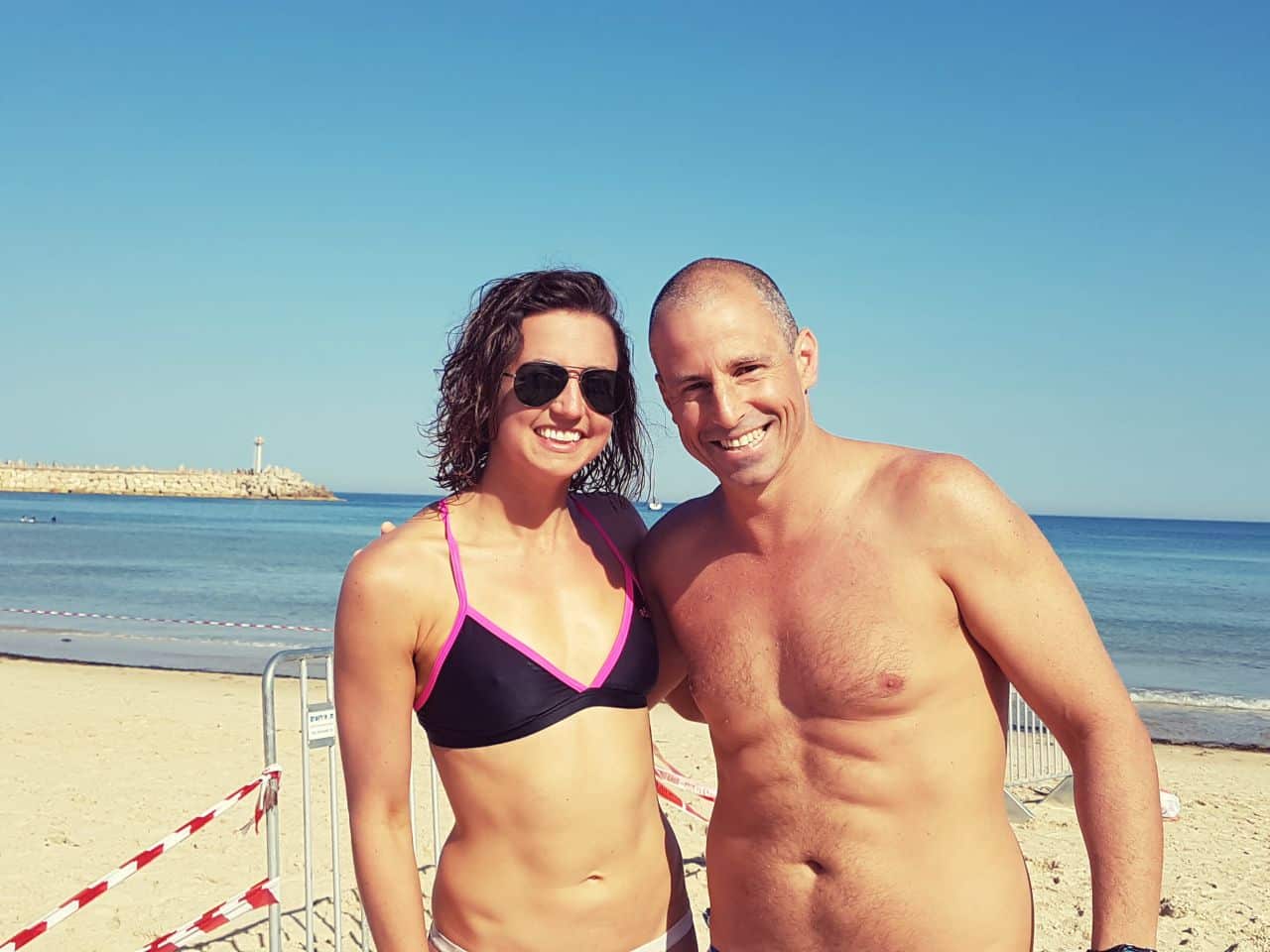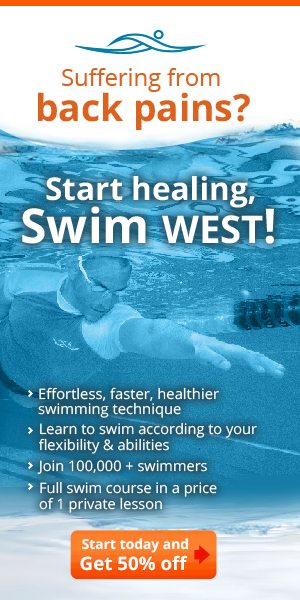Rebecca Soni US Olympic Gold medalist can to Israel and we had the chance to meet her swim with her and enjoy a person so beautiful, inspiring and real.
Ori Sela the founder of WEST swimming technique had the chance to talk with her about the “day” after the Olympics & WEST swimmers send her some questions , very important ones:
- When did you start swimming and why?
I started swimming at age 10, because of my older sister. She had started on a club team and my parent eventually decided that both kids in the same practice was a good idea. I owe her a lot for all the inspiration she gave me, whether she knew it or not!
- When was the time that you said , I love it(swimming)!! If you loved it?
It took me a while, but a couple years in was when I started loving it. I loved the hard workouts. Not necessarily competing.
- When did you understand that you are a breaststroke swimmer?
From the beginning! It took me a while to be able to swim the other strokes!
- When was your first time you understood that you are going to be in the Olympics?
Really, not until the 2008 trials when I made it. It’s such a stressful meet, and you never know what will happen, how others will swim, if you will be feeling healthy and ready. I remember only realizing that I had a shot to make it about a year before.
- After 2008 did you know you are going to continue to the next Olympics. How Do you Start when you know you have 4 more years to go?
I wasn’t sure I would continue after the first Olympics. It wasn’t until I graduated college in 2009, that I reset my focus on London. I like having a lot of time to prepare. All the World Champs between then and the Games were like trial runs, chances to race tapered. It’s tough, but I enjoyed the long term plan.
- What was your biggest failure and how did you continue afterword’s?
2009, the year of the fast suits. I refused to accept that they were a thing… I didn’t like wearing them, and I felt like it leveled the playing field and my strengths were not as strong in a suit. What I could have done better was learn how to swim in them, instead of trying one on the last moment before Worlds. That cost me a world record, and medaling in the 200. And a lot of anxiety too!
- What’s the good things you can say about the coaches in your life, and what’s the 3 things a good coach needs to have?
My coaches were all phenomenal. They were tough, but helped me get stronger. Each of my coaches taught me invaluable things that I took on with me for the rest of my career. From my experience, I would say coaches need to
- Know how to push their athletes (properly)
- Encourage communication between them and their athletes
- Trust in their athletes to do the work (if they’re motivated to do it!)
- How do you meditate or concentrate before a big event in life? Big competition? And what do you do 3 minutes before the race ?( music breathing?)
Visualization was important for me, but it starts way earlier. The whole season you should be preparing yourself through visualizing how you want to perform, and feel in those high pressure moments. Without giving thought to that, you’re just leaving it to chance. We don’t race in high pressure races too often, so we need to practice through visualizing!
- When did you say, that’s it I’m going to swim again and in open water? What’s different for you today?
After London I happily retired, and didn’t touch the water for a couple years. It was only about 2 years ago that I decided to go swim in the ocean with a local swim group. What’s different now is that it’s a fun environment, and I don’t have to go if I don’t want to (though I always want to!!)
- Rise Elite Athletes is important for Olympic athletes and kids, both gain a lot from this unique project, when is the best time to bring an Olympic swimmer to join? 1 year? 3 months?
Yes, we aim to positively influence the next generation of athletes, but there is great benefit to the Olympians as well! There isn’t really a “best time” to join, each athlete is different! It’s pretty great that we get to individualize each athletes experience to be exactly what they need!
- Does a swimmer work with a runner? Or is it the same country and sport?
The things that are mentally tough in swimming are very similar to other sports, and even things outside of athletics! It is possible to mentor an athlete in a different sport, and sometimes this alternative perspective can be even more productive! Ideally, the athletes work with Olympians in the same sport & country, but if not, it is still fantastic!
- Can an Olympic swimmer get help and guidance as well ? or just younger athletes?
Absolutely, our work is focused around the things that have helped us the most in our careers, as well as new research and methods that we are aware of since we’ve retired. Everyone can benefit from it… Athletes that are Olympians, or just starting out, coaches, even parents!
- Why find a 70K competition, why just train for fun? Why do you think you need a hard and crazy goal?
Because it’s fun! To me, it’s about adventure and the experience. Every training session I do has the opportunity to be something totally new and an adventure of its own. I am just enjoying it, and if I don’t one day, then I’ll move on.
Last question :
What’s you ideal man? Does he need to be an athlete?
This question made me laugh!! And made me think about it a good bit. For me, it’s all about being passionate about what you do. I am passionate about being active, and about adventure, as well as about RISE and what we are building there. We don’t have to share the same exact passions, but what I appreciate is someone who brings the same spark, passion and excitement to what they do. And also respects me and my passion for what I do!!



